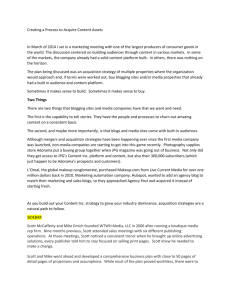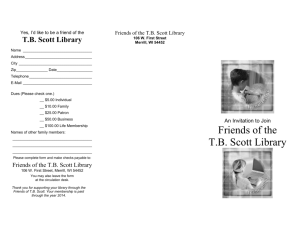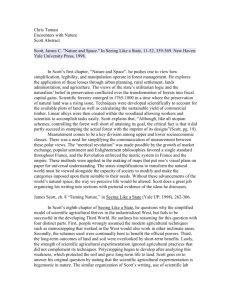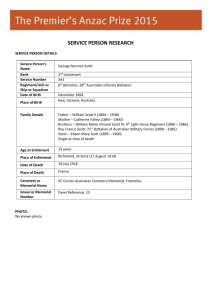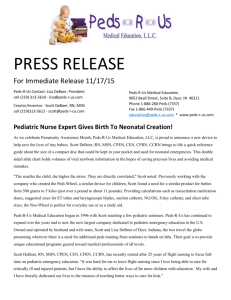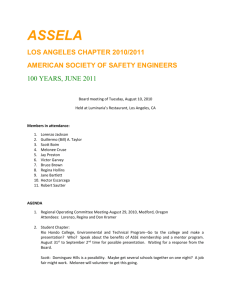Scott Memorial Hospital Begins Narcotics Policy in ER
advertisement
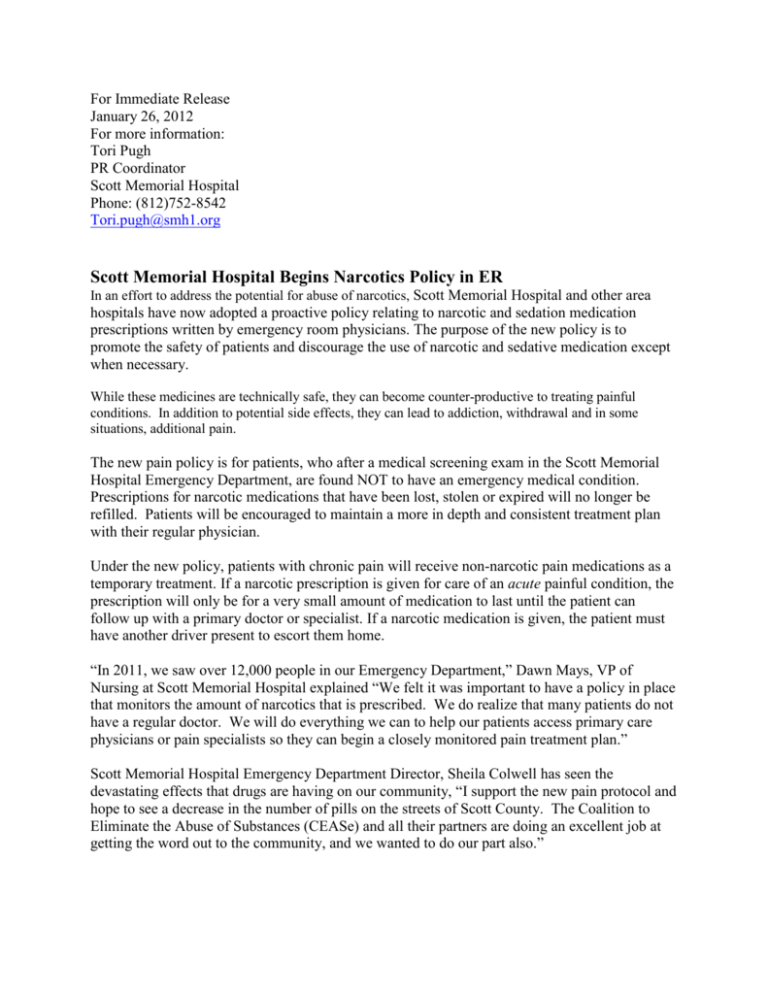
For Immediate Release January 26, 2012 For more information: Tori Pugh PR Coordinator Scott Memorial Hospital Phone: (812)752-8542 Tori.pugh@smh1.org Scott Memorial Hospital Begins Narcotics Policy in ER In an effort to address the potential for abuse of narcotics, Scott Memorial Hospital and other area hospitals have now adopted a proactive policy relating to narcotic and sedation medication prescriptions written by emergency room physicians. The purpose of the new policy is to promote the safety of patients and discourage the use of narcotic and sedative medication except when necessary. While these medicines are technically safe, they can become counter-productive to treating painful conditions. In addition to potential side effects, they can lead to addiction, withdrawal and in some situations, additional pain. The new pain policy is for patients, who after a medical screening exam in the Scott Memorial Hospital Emergency Department, are found NOT to have an emergency medical condition. Prescriptions for narcotic medications that have been lost, stolen or expired will no longer be refilled. Patients will be encouraged to maintain a more in depth and consistent treatment plan with their regular physician. Under the new policy, patients with chronic pain will receive non-narcotic pain medications as a temporary treatment. If a narcotic prescription is given for care of an acute painful condition, the prescription will only be for a very small amount of medication to last until the patient can follow up with a primary doctor or specialist. If a narcotic medication is given, the patient must have another driver present to escort them home. “In 2011, we saw over 12,000 people in our Emergency Department,” Dawn Mays, VP of Nursing at Scott Memorial Hospital explained “We felt it was important to have a policy in place that monitors the amount of narcotics that is prescribed. We do realize that many patients do not have a regular doctor. We will do everything we can to help our patients access primary care physicians or pain specialists so they can begin a closely monitored pain treatment plan.” Scott Memorial Hospital Emergency Department Director, Sheila Colwell has seen the devastating effects that drugs are having on our community, “I support the new pain protocol and hope to see a decrease in the number of pills on the streets of Scott County. The Coalition to Eliminate the Abuse of Substances (CEASe) and all their partners are doing an excellent job at getting the word out to the community, and we wanted to do our part also.” CEASe of Scott County’s mission is to reduce the incidence and prevalence of substance abuse and addiction among adults and children in Scott County. CEASe is a county-wide citizen body that plans and monitors a comprehensive substance abuse action plan. "CEASe is so excited and proud of Scott Memorial Hospital for taking the lead among Southern Indiana hospitals at setting up a pain medicine policy for their staff,” explained CEASe Coordinator, Lori Croasdell “With Scott County having the highest Oxycodone retail distribution in the State, as well as 17 prescription drug overdose deaths with 2 pending this year so far out of 39 coroner cases (48%), we are thankful our hospital is taking the lead and setting a good example among the medical community. CEASe has a great relationship with the hospital and appreciates their response to this prescription drug epidemic."


